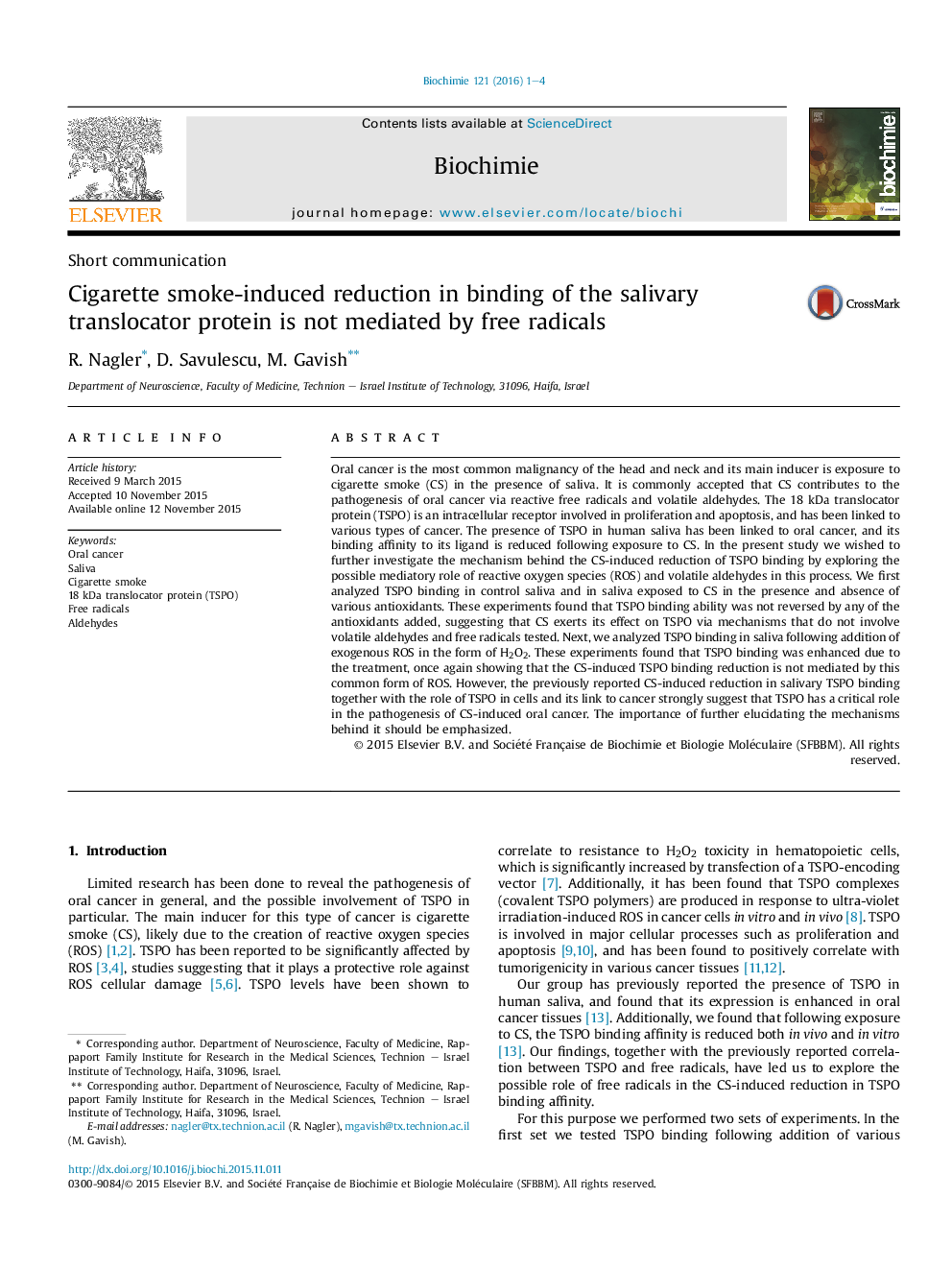| کد مقاله | کد نشریه | سال انتشار | مقاله انگلیسی | نسخه تمام متن |
|---|---|---|---|---|
| 1951937 | 1538410 | 2016 | 4 صفحه PDF | دانلود رایگان |
• Exposure to cigarette smoke (CS) with saliva is the main inducer of oral cancer.
• Presence of TSPO in human saliva has been linked to oral cancer.
• We investigated the mechanism behind the CS-induced reduction of TSPO binding.
• None of the free radicals tested is involved in CS-induced TSPO binding reduction.
• CS affects TSPO binding via mechanisms other than free radicals or volatile aldehydes.
Oral cancer is the most common malignancy of the head and neck and its main inducer is exposure to cigarette smoke (CS) in the presence of saliva. It is commonly accepted that CS contributes to the pathogenesis of oral cancer via reactive free radicals and volatile aldehydes. The 18 kDa translocator protein (TSPO) is an intracellular receptor involved in proliferation and apoptosis, and has been linked to various types of cancer. The presence of TSPO in human saliva has been linked to oral cancer, and its binding affinity to its ligand is reduced following exposure to CS. In the present study we wished to further investigate the mechanism behind the CS-induced reduction of TSPO binding by exploring the possible mediatory role of reactive oxygen species (ROS) and volatile aldehydes in this process. We first analyzed TSPO binding in control saliva and in saliva exposed to CS in the presence and absence of various antioxidants. These experiments found that TSPO binding ability was not reversed by any of the antioxidants added, suggesting that CS exerts its effect on TSPO via mechanisms that do not involve volatile aldehydes and free radicals tested. Next, we analyzed TSPO binding in saliva following addition of exogenous ROS in the form of H2O2. These experiments found that TSPO binding was enhanced due to the treatment, once again showing that the CS-induced TSPO binding reduction is not mediated by this common form of ROS. However, the previously reported CS-induced reduction in salivary TSPO binding together with the role of TSPO in cells and its link to cancer strongly suggest that TSPO has a critical role in the pathogenesis of CS-induced oral cancer. The importance of further elucidating the mechanisms behind it should be emphasized.
Journal: Biochimie - Volume 121, February 2016, Pages 1–4
